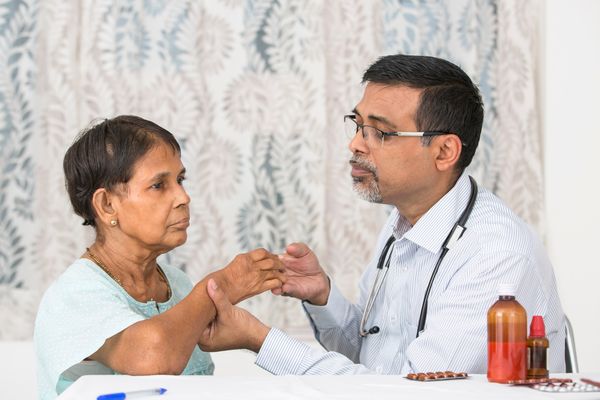Imagine having itchy skin and fatigue with no explanation or diagnosis for your symptoms. This is what happened to Minnesota native Nishele, 44, who received a primary biliary cholangtis (PBC) diagnosis after years without any answers. Her journey, unfortunately, is like many others who have PBC.
"By the time I was diagnosed, I had actually had elevated liver enzymes for about four years that they just ignored," Nishele says. Her frustration grew steadily until she was sent to a gastrointestinal (GI) doctor who ran liver tests and made the PBC diagnosis.
PBC, a rare autoimmune disease that affects the bile ducts in the liver, can sometimes take years to present symptoms. In fact, many symptoms are common to other diseases, so misdiagnosis—or no diagnosis, as in Nishele's case—is common.
"I was relieved that I finally knew what was going on," Nishele says.
It is important to be evaluated by a doctor with experience in liver diseases to make an accurate diagnosis of PBC in a timely fashion.
Patient empowerment is key to maintaining health. It's important to ask your health care professional questions and advocate for important evaluations, such as routine liver function tests, whether you're experiencing symptoms or not.
"I know it sounds kind of cliché, but you have to be your own patient advocate," says Nishele. "You know when there's something wrong. You can't just take their word for it and not push the issue. You have to insist things are followed up on."
Advocacy is particularly important for females. Women are nine times more likely than men to develop PBC, meaning that women make up about 90 percent of PBC cases. The disease most often develops during middle age and is usually diagnosed in people between the ages of 35 and 60 years. There appears to be a genetic predisposition to developing PBC, because it's more common among siblings and in families where PBC or other autoimmune disease has affected one or more members.
Genetics may have played a role in Nishele's PBC. About a year after she was diagnosed, her mother received the same diagnosis. She now assists her mom by sharing important information and encouraging her to work closely with her health care professionals to manage the condition.
If you think you or someone you love may have PBC, it's important to talk with your health care professional about testing and treatment. The most common initial symptoms are fatigue and itching of the skin (pruritis). Other symptoms may include abdominal pain, darkening of the skin, dry mouth and eyes, and bone, muscle and joint pain. Learn more about the liver and PBC by visiting https://healthywomen.org/PBC.
"I think you just have to be determined and just be proactive about it," says Nishele. "I consistently research as much information as I can and try to find the answers. I think knowledge is power."
This resource was created with support from Intercept Pharmaceuticals, Inc.







